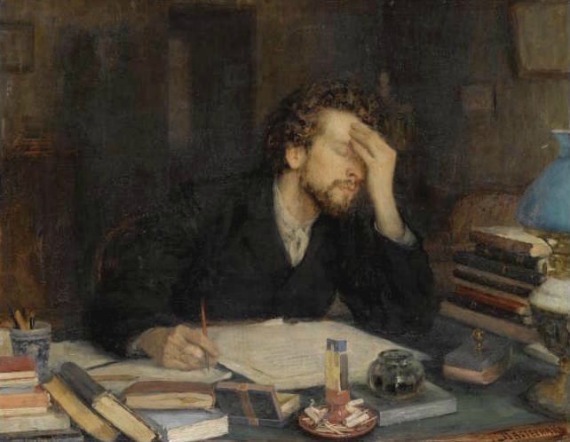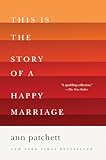 In her essay “The Getaway Car,” now included in her nonfiction collection This is a Story of a Happy Marriage, Ann Patchett describes well-meaning readers who approach her at events with ideas for books. To them, it’s a simple equation: their premise plus Patchett’s prose equals literary gold. Patchett deftly points out that ideas for stories are everywhere and easy to find; it’s the sitting down and writing them that takes hard work.
In her essay “The Getaway Car,” now included in her nonfiction collection This is a Story of a Happy Marriage, Ann Patchett describes well-meaning readers who approach her at events with ideas for books. To them, it’s a simple equation: their premise plus Patchett’s prose equals literary gold. Patchett deftly points out that ideas for stories are everywhere and easy to find; it’s the sitting down and writing them that takes hard work.
Now that I’m finished with my forthcoming novel, I see what she means. Without a long-term project to obsess over, I find myself channeling ideas all the time. A new premise will possess me for a few minutes or hours, my brain asking What if? or Why would that happen?, until, like a fly at a picnic, I alight on another, juicier narrative. Patchett is right: there are so many stories! Alas, I have only one life, and one voice, and only three days of childcare a week to write.
But maybe the ideas that don’t snag my prolonged attention would occupy another, different writer. Let’s try it: Here are a few novels I won’t write. Maybe you will.
The Doctor Is In
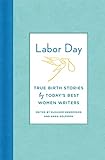
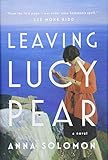
 When I was pregnant with my daughter I read Birth Day: A Pediatrician Explores the Science, the History and the Wonder of Childbirth by Mark Sloan. There are so many remarkable details in this book, from the cool, weird things a fetus does in the womb, to theories about why labor is so easy for gorillas and so difficult for human beings. I was especially compelled by the story of James Barry, the first surgeon to perform a successful cesarean (meaning that both mother and child survived). Barry, born in the late 1700s, was an Irish military surgeon in the British Army, and Sloan describes him as not being particularly likeable: pushy, without tact. After his death, it was revealed that Barry was born a woman but passed as a man for decades. When I read that I couldn’t believe his story hadn’t yet been told (or not adequately; whoever does this book right will have a bestseller followed by an HBO adaptation). Because I am not up for the task of writing historical fiction, I nominate my friend Anna Solomon for the job. She would be perfect: her two novels, The Little Bride and Leaving Lucy Pear, explore gender, sexuality, and motherhood in bygone eras; plus, she’s the co-editor of an anthology of birth stories called Labor Day (one of mine is in there).
When I was pregnant with my daughter I read Birth Day: A Pediatrician Explores the Science, the History and the Wonder of Childbirth by Mark Sloan. There are so many remarkable details in this book, from the cool, weird things a fetus does in the womb, to theories about why labor is so easy for gorillas and so difficult for human beings. I was especially compelled by the story of James Barry, the first surgeon to perform a successful cesarean (meaning that both mother and child survived). Barry, born in the late 1700s, was an Irish military surgeon in the British Army, and Sloan describes him as not being particularly likeable: pushy, without tact. After his death, it was revealed that Barry was born a woman but passed as a man for decades. When I read that I couldn’t believe his story hadn’t yet been told (or not adequately; whoever does this book right will have a bestseller followed by an HBO adaptation). Because I am not up for the task of writing historical fiction, I nominate my friend Anna Solomon for the job. She would be perfect: her two novels, The Little Bride and Leaving Lucy Pear, explore gender, sexuality, and motherhood in bygone eras; plus, she’s the co-editor of an anthology of birth stories called Labor Day (one of mine is in there).
Trouble in Oakland
This summer, the East Bay was rocked by a police scandal that included officers in Oakland and Richmond, as well as deputies in the Alameda county sheriff’s department. As of mid-September, criminal charges have been made against seven officers and Oakland has witnessed one Police Chief after another step down, with Mayor Libby Schaaf struggling to explain the multiple resignations. In June, a sex worker going by the name of Celeste Guap revealed in an on-air television interview that she’d had sex with a handful of police officers, some of them when she was a minor. As the East Bay Express reported:
According to text messages between police officers and the victim, at least three OPD officers leaked her confidential information about undercover prostitution stings. One Oakland cop obtained police reports and criminal histories and shared them with the victim, which is against department policy. Guap also said she slept with cops as a form of protection.
In a quote from Guap that I keep coming back to, she said that she and one of the officers would hook up “like every Saturday night for three months straight…He had a mattress in his back seat and slept in his car in the OPD parking lot, so we would hook up after work.”
This scandal exists against a much larger backdrop; it coincided with the release of Stanford University’s 2013-2014 research study of the Oakland police department, which found “a significant pattern of racial disparities” regarding who is stopped, handcuffed, and arrested; according to the report, police officers showed implicit bias against the African-American community. For many in the city, this came as no surprise. Mayor Schaaf made relations with the community even more tense when she identified the race of officers involved in a totally different department scandal; according to the Oakland Black Officers Association, Schaaf had never before identified the race of officers involved in an investigation.
Fiction has always helped us understand and grapple with the complexities of the real world, and a book like this, in an era of highly visible police violence, feels necessary.
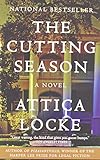 Who is this young woman? Who is this young cop? This would be a big, multi-voiced novel, with community members, law enforcement, and savvy political players. I nominate Attica Locke, author of three crime novels that deal with race in American life, including The Cutting Season, about the discovery of a dead body on a plantation-turned-tourist attraction-and-event space. (Though Ms. Locke might be a little busy right now — she’s currently writing for, and producing, the TV show Empire…)
Who is this young woman? Who is this young cop? This would be a big, multi-voiced novel, with community members, law enforcement, and savvy political players. I nominate Attica Locke, author of three crime novels that deal with race in American life, including The Cutting Season, about the discovery of a dead body on a plantation-turned-tourist attraction-and-event space. (Though Ms. Locke might be a little busy right now — she’s currently writing for, and producing, the TV show Empire…)
Housework
 In early September, Rachel Cusk published an essay called “Making House: Notes on Domesticity” in the New York Times Magazine that so closely aligned with my interests I was practically levitating with excitement as I read it. First, I love Cusk’s writing, in particular her essays about mothering in A Life’s Work. Second, I read design blogs daily and enjoy browsing furniture catalogues and real estate websites; if I’m anxious, nothing calms me more than thinking about sectionals in imaginary living rooms. Third, I am interested in the ways women’s identities are shaped and influenced, and this line from Cusk felt truer than anything I’d read in a long time:
In early September, Rachel Cusk published an essay called “Making House: Notes on Domesticity” in the New York Times Magazine that so closely aligned with my interests I was practically levitating with excitement as I read it. First, I love Cusk’s writing, in particular her essays about mothering in A Life’s Work. Second, I read design blogs daily and enjoy browsing furniture catalogues and real estate websites; if I’m anxious, nothing calms me more than thinking about sectionals in imaginary living rooms. Third, I am interested in the ways women’s identities are shaped and influenced, and this line from Cusk felt truer than anything I’d read in a long time:
Yet there are other imperatives that bedevil the contemporary heirs of traditional female identity, for whom insouciance in the face of the domestic can seem a sort of political requirement, as though by ceasing to care about our homes we could prove our lack of triviality, our busyness, our equality.
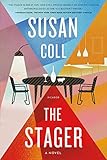
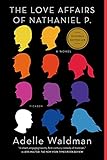 Well, that explains my shame at admitting my couch-fantasies here — shouldn’t I be above all that? Cusk’s essay led me to think about depictions of household maintenance and design in fiction. I’m usually a plot-lusty reader, but one of my favorite sections in The Love Affairs of Nathaniel P. by Adelle Waldman was when its hero…cleaned his apartment. I still remember how gracefully it transported me to the more mundane aspects of life. I recently loved The Stager by Susan Coll, which is in part about a woman who prepares properties for the housing market by changing their furniture, painting a few walls, and so on. I could’ve read about her work for hundreds of pages! I wonder, could someone write a domestic drama which contained no drama, only its domestic details? Can a novel exist on descriptions of laundry alone, on musings about where to best mount a living room television? I’m thinking the main character wants a “clean” house, like so many of the women on House Hunters. This would be a short and intensely claustrophobic book — but also, somehow, sexy. I nominate Rachel Cusk to write this book. If she’s unavailable perhaps Nicholson Baker wants to take on the challenge.
Well, that explains my shame at admitting my couch-fantasies here — shouldn’t I be above all that? Cusk’s essay led me to think about depictions of household maintenance and design in fiction. I’m usually a plot-lusty reader, but one of my favorite sections in The Love Affairs of Nathaniel P. by Adelle Waldman was when its hero…cleaned his apartment. I still remember how gracefully it transported me to the more mundane aspects of life. I recently loved The Stager by Susan Coll, which is in part about a woman who prepares properties for the housing market by changing their furniture, painting a few walls, and so on. I could’ve read about her work for hundreds of pages! I wonder, could someone write a domestic drama which contained no drama, only its domestic details? Can a novel exist on descriptions of laundry alone, on musings about where to best mount a living room television? I’m thinking the main character wants a “clean” house, like so many of the women on House Hunters. This would be a short and intensely claustrophobic book — but also, somehow, sexy. I nominate Rachel Cusk to write this book. If she’s unavailable perhaps Nicholson Baker wants to take on the challenge.
Ice Age Coming
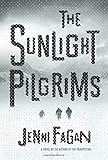 A few days before my senior year of college, I did mushrooms with my best friend. Aside from walking into a field of corn shrieking, we also sat in his car and listened to Kid A by Radiohead. When the song “Idioteque” came on, and Thom Yorke began to sing, “Ice Age coming, Ice Age coming…” I had an entire vision about a novel set during a new ice age, with people grappling with the elements, wearing furs, re-purposing ceiling fans as weapons, and turning bathing suits into flags. I thought this idea was so brilliant that I refused to tell my friend about it for fear that he’d steal it. (I hadn’t yet gotten the memo from Ann Patchett about ideas v. work.) Sometimes I think about this unwritten ice age novel, and how fun it would be to read. I was going to nominate a Jean M. Auel type to pen such a saga when I read about The Sunlight Pilgrims by the Scottish author Jenni Fagan. Set in 2020, it shows us a world much like our own, but cold, and getting colder. In her review of the novel, Marisa Silver highlights Fagan’s poetic prose: “Early on, we are told that in this worst of winters “icicles will grow to the size of narwhal tusks or the long bony finger of winter herself.”” I’m putting on mittens and reading this! Thank you, Ms. Fagan.
A few days before my senior year of college, I did mushrooms with my best friend. Aside from walking into a field of corn shrieking, we also sat in his car and listened to Kid A by Radiohead. When the song “Idioteque” came on, and Thom Yorke began to sing, “Ice Age coming, Ice Age coming…” I had an entire vision about a novel set during a new ice age, with people grappling with the elements, wearing furs, re-purposing ceiling fans as weapons, and turning bathing suits into flags. I thought this idea was so brilliant that I refused to tell my friend about it for fear that he’d steal it. (I hadn’t yet gotten the memo from Ann Patchett about ideas v. work.) Sometimes I think about this unwritten ice age novel, and how fun it would be to read. I was going to nominate a Jean M. Auel type to pen such a saga when I read about The Sunlight Pilgrims by the Scottish author Jenni Fagan. Set in 2020, it shows us a world much like our own, but cold, and getting colder. In her review of the novel, Marisa Silver highlights Fagan’s poetic prose: “Early on, we are told that in this worst of winters “icicles will grow to the size of narwhal tusks or the long bony finger of winter herself.”” I’m putting on mittens and reading this! Thank you, Ms. Fagan.
Crystal Geyser by CG Roxane
Have you ever read the label on a plastic bottle of Crystal Geyser water? (Why would you? The graphic design is horrendous.) Well, I did recently, and was struck by the words I found there:
Crystal Geyser
Natural
Alpine Spring Water
by CG Roxane
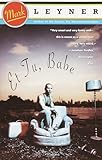 Now, I realize I could turn on the magical Google Machine and find out that CG Roxane is a corporation or whatever. But what’s the fun in that? Instead I imagined this CG Roxane as a person. He’s got on a Stetson cowboy hat and a large-collared Oxford shirt. He’s obsessed with water. His mother calls him Charles Gomez, which is what the “CG” stands for. In my mind, this book would be a little like the movie There Will be Blood, or a fictional version of the Robert Caro biographies of LBJ. A story about power, politics, insanity. It could also be a satire — an absurdist, playful romp. If that’s the case, I nominate Mark Leyner to write it. In 2012 the New York Times Magazine described Leyner’s Et Tu, Babe as “an adrenalized, needle-to-the-red satire of (among many other things) the derangements of celebrity mass worship in a disjunctive culture-gone-wild.” That’s pretty much what I had in mind with this story. Imagine Charles Gomez Roxane. He wants to own all the water. All of it!
Now, I realize I could turn on the magical Google Machine and find out that CG Roxane is a corporation or whatever. But what’s the fun in that? Instead I imagined this CG Roxane as a person. He’s got on a Stetson cowboy hat and a large-collared Oxford shirt. He’s obsessed with water. His mother calls him Charles Gomez, which is what the “CG” stands for. In my mind, this book would be a little like the movie There Will be Blood, or a fictional version of the Robert Caro biographies of LBJ. A story about power, politics, insanity. It could also be a satire — an absurdist, playful romp. If that’s the case, I nominate Mark Leyner to write it. In 2012 the New York Times Magazine described Leyner’s Et Tu, Babe as “an adrenalized, needle-to-the-red satire of (among many other things) the derangements of celebrity mass worship in a disjunctive culture-gone-wild.” That’s pretty much what I had in mind with this story. Imagine Charles Gomez Roxane. He wants to own all the water. All of it!
What novels won’t you write?
